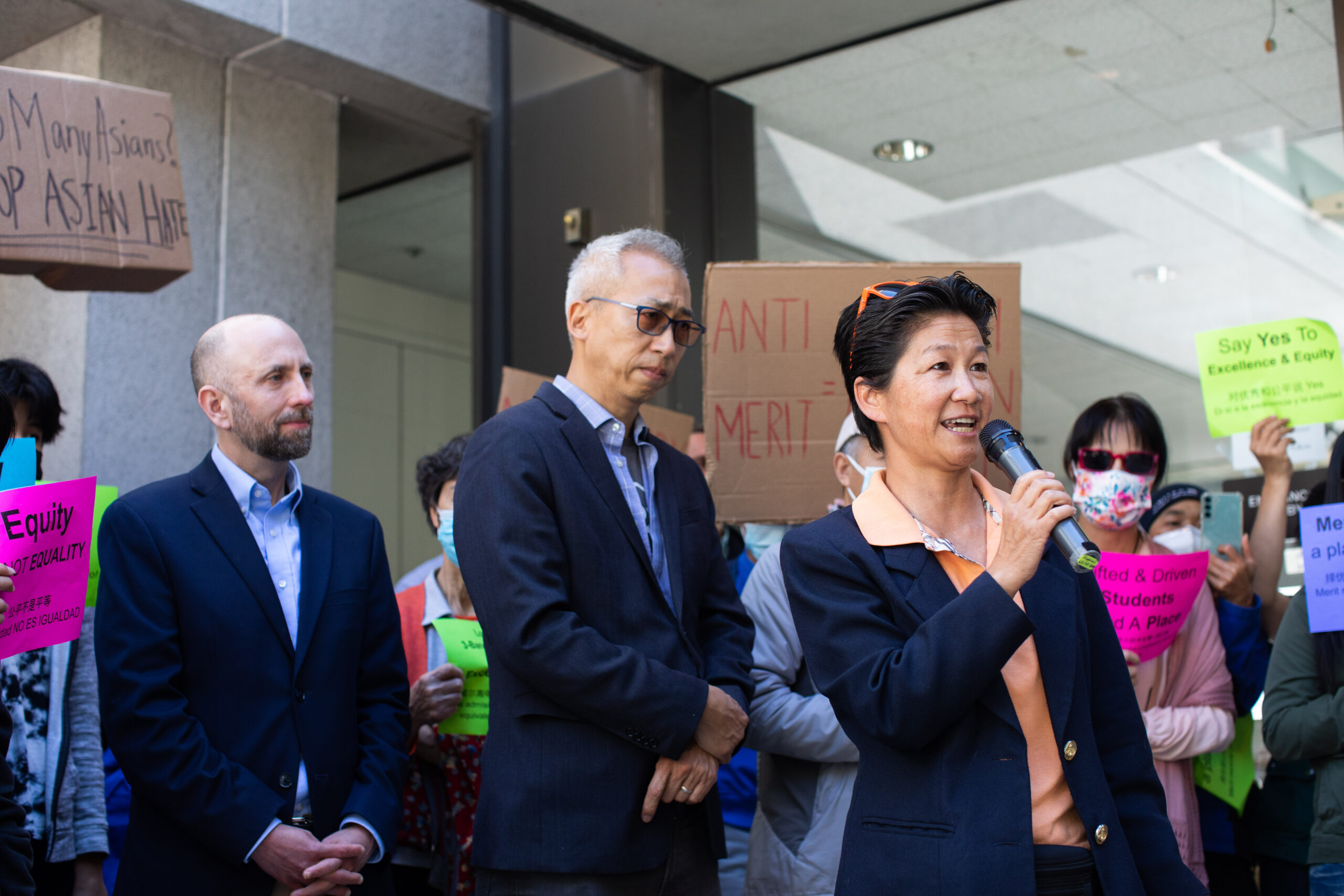San Francisco has seen the Board of Education take up Lowell High School admissions several times in recent years. But a vote Wednesday will mark a stark shift borne from the recall—regardless of the outcome.
Historically, school officials left Lowell alone despite a looming legal issue for its longstanding merit-based admissions against state law for a comprehensive public high school. Despite efforts to increase diversity, the well-resourced, high-performing school has disproportionately low numbers of Black and Latinx students—making it a glaring example of school segregation to critics.
That changed in October 2020, when the pandemic prevented the San Francisco Unified School District from conducting its special assessments for Lowell and the governing board largely favored long-term changes.
After another racist incident set off calls to change the culture, the board voted 5-2 on a nascent proposal to permanently end merit-based admissions at Lowell. The decision was later undone after a judge determined it was improperly agendized.
Thus, the lottery was extended temporarily, once again.
That 5-2 vote played a key role in fueling the landslide recall of three commissioners, all of whom voted in favor of permanently ending merit-based admissions. And with the recall, they were replaced with three commissioners who wanted to revisit lottery admissions or outright restore the selective process.
Last week, that shift came into clear view.
The board took up discussion around two proposals from Superintendent Vincent Matthews: one to extend lottery admissions for Lowell High an additional year to 2023-24, and another to form a task force to determine a long-term solution.
One could pass or fail without the other.
The task force would examine admissions policies and programs for Lowell and all of its high schools. The group would present updates each quarter culminating in recommendations by April 30.
All board members spoke in favor of the task force after four hours of public comment tinged with racial divisions. But when it came to the extension, commissioners seemed mixed in their leanings and left an uncertain outcome that could lurch Lowell back to merit-based admissions after strides in diversity.
Commissioner Ann Hsu—a recall volunteer appointed by Mayor London Breed, along with Lainie Motamedi and Lisa Weissman-Ward up for election in November—stood by her longstanding call to restore merit-based admissions. In a previous interview with The Standard, she welcomed litigation that might result from its restoration.
“Restoring Lowell to criteria based admissions will signal to the community that high standards do matter, that hard work and academic excellence do matter” Hsu said on Thursday. ”These values are not in opposition to or mutually exclusive of values of diversity and equity.”
Gallery of 1 photos
the slideshow
Motamedi, an appointee screened by the recall camp as in favor of restoring merit-based admissions like Hsu, said it wasn’t fair to extend one year at a time while Weissman-Ward expressed disappointment in the choices. President Jenny Lam, who is poised to cast the swing vote, acknowledged the binary choice.
“There are going to be different ways we look at the selective admissions criteria going forward,” Lam said, who added she is still deliberating. “It has to be authentic, it has to bring communities together.”
Vice President Kevine Boggess, who voted against the permanent change with Lam out of concern for process, expressed support for the recommendations, as did Commissioners Matt Alexander and Mark Sanchez.
“I don’t want us to go backward in time,” Sanchez said at the Thursday meeting. “We’ve seen from the data that 20 years of [diversity admissions efforts] does not work. This district was founded on a lot of racist ideas. Lowell is not an island unto itself.”
Lowell comprises 48.5% Asian students, 17.7% white students, 14.1% Latinx students, 2% Black students, and 5.4% Filipino students, according to district data. Its freshman class admitted through the lottery system is 43.6% Asian, 15.7% white, 21.6% Latinx, 4% Black and 4.6% Filipino.
To return to merit-based admissions for the 2023-24 school year, staff estimated it would take about $40,500 in overtime costs and additional technical resources to train new staff, buy tests, prepare materials and communicate the changes with families of eighth graders. The cost for a facilitator of the task force is not yet known.
Looming over the decision to return to merit-based admissions is its legality.
School officials also danced around the lawfulness of Lowell’s merit-based admissions, only stating that everyone on the task force should have a baseline understanding of the legal landscape.
The district previously told The Standard that the next admissions policy for Lowell must align with state law, “which explicitly prohibits public school districts from making enrollment decisions based on the student’s academic performance.”
In any case, under the previous board there would be little question of the proposals’ approval.
The oft-mentioned reset of the new board is here. And Wednesday’s likely split vote will no doubt prove that.
